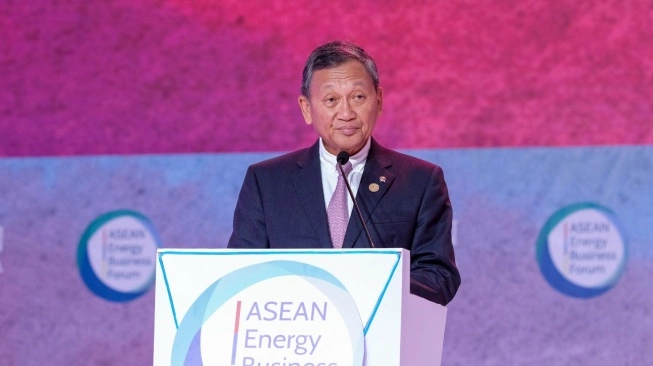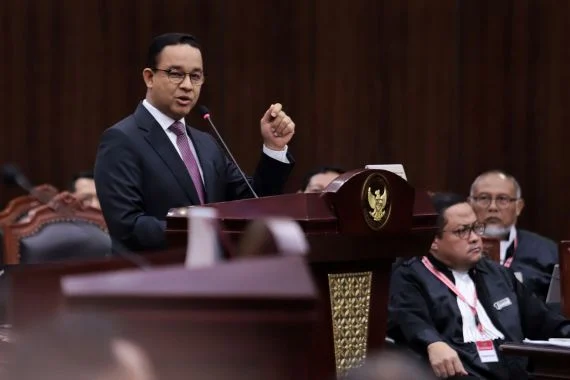

Are you tired of the unpredictable fluctuations in fuel prices that seem to hit your wallet every time you visit the gas station? Well, there might be some good news on the horizon! The government has recently made a groundbreaking decision that is set to bring relief to consumers and businesses alike. Let’s delve into the details of why this move could be a game-changer for fuel prices until June 2024 in Indonesia.
Reasons for the government’s decision
The recent decision by the Indonesian government to hold fuel prices until June has stirred up discussions among citizens and businesses alike. Many wonder what prompted this move from the authorities. One of the key reasons behind the government’s decision is to stabilize the economy amidst global uncertainties.
By maintaining fuel prices at their current levels, the government aims to provide a sense of stability for consumers who rely heavily on transportation for their daily activities. Additionally, this decision can help businesses plan their budgets more effectively without sudden increases in operational costs due to fluctuating fuel prices.
Furthermore, with inflation concerns looming, keeping fuel prices steady can prevent additional financial burdens on households already grappling with rising living expenses. The government likely sees this as a strategic measure to ease economic pressures and support overall growth in various sectors across Indonesia.
Impact on consumers and businesses
The government’s decision to hold fuel prices until June has a significant impact on both consumers and business across Indonesia. For consumers, this move provides temporary relief by stabilizing the cost of transportation and daily essentials. Families can better budget their expenses without worrying about sudden price hikes at the pump. On the other hand, businesses also benefit from predictable fuel costs. Industries reliant on transportation, such as logistics and delivery services, can maintain stable pricing for their services. This stability allows companies to plan ahead with more certainty in their operations and investments.
However, some small businesses that rely heavily on fuel may feel constrained by this decision. They might have preferred a decrease in fuel prices to reduce operating expenses further or increase profit margins. It’s crucial for these businesses to adapt their strategies accordingly during this period of price stability. Looking ahead, it will be interesting to see how the government navigates future fuel price adjustments beyond June 2024. Businesses will need to stay agile and prepared for any changes that could impact their bottom line in the long run.
Criticisms of the government’s move
While the government’s decision to freeze fuel prices until June may provide temporary relief for consumers and businesses, it hasn’t escaped criticism. Some experts argue that by artificially capping fuel prices, the government is interfering with market forces. This intervention could have unintended consequences in the long run. Critics also point out that keeping fuel prices unchanged may lead to inefficiencies in resource allocation as it distorts the true cost of production and transportation. Additionally, some stakeholders believe that maintaining stable fuel prices discourages investment in renewable energy sources and sustainable practices.
Others raise concerns about the impact on government revenue, especially in countries heavily reliant on oil exports. The move to hold fuel prices steady could potentially strain public finances and limit funding for essential services. While the government’s decision may offer immediate benefits, it has sparked debate among experts regarding its sustainability and broader implications for the economy.
Future predictions for fuel prices
Looking ahead, the future of fuel prices remains uncertain as various factors continue to influence the global market. With geopolitical tensions, supply chain disruptions, and environmental regulations in play, predicting fuel costs is like reading tea leaves. The ongoing transition towards renewable energy sources adds another layer of complexity to forecasting fuel prices. As countries strive to meet sustainability goals and reduce carbon emissions, the demand for traditional fossil fuels may fluctuate unpredictably.
Technological advancements in electric vehicles and alternative fuels also pose a challenge to traditional oil-dependent industries. The rise of electric cars and hydrogen-powered vehicles could potentially reshape the landscape of transportation and impact fuel prices significantly. Market volatility and economic shifts can further sway fuel price trends in unpredictable ways. Whether it’s sudden spikes due to unforeseen events or gradual declines influenced by changing consumer habits, staying abreast of these developments is crucial for businesses reliant on fuel. While experts attempt to analyze data and trends to make educated guesses about future fuel prices, one thing remains certain: adaptability will be key for businesses navigating this ever-evolving landscape.
Alternatives to relying on fossil fuels
As the government’s decision to hold fuel prices until June creates a window of opportunity, it also sheds light on the importance of exploring alternatives to fossil fuels. Businesses and consumers alike are increasingly looking towards sustainable energy sources as a way to reduce carbon emissions and combat climate change. One promising alternative is renewable energy, including solar, wind, hydroelectric power, and biofuels. These sources offer a cleaner and more sustainable option compared to traditional fossil fuels. Investing in infrastructure that supports these renewable energy options can lead to long-term benefits for both the environment and the economy.
Innovation in technology plays a crucial role in developing new ways to harness clean energy efficiently. Advancements in battery storage, smart grids, and electric vehicles are paving the way for a greener future. By embracing these innovations, we can reduce our dependence on fossil fuels while creating new opportunities for growth and sustainability. It is essential for governments, businesses, and individuals to collaborate in promoting these alternatives effectively. Through collective efforts and investments in clean energy solutions, we can pave the way towards a more sustainable future for generations to come.
Conclusion
The government’s decision to hold fuel prices until June has brought temporary relief to consumers and businesses in Indonesia. While criticisms have been voiced regarding the sustainability of this move, it is clear that addressing the volatility of fuel prices requires a comprehensive strategy.
As we look towards the future, it becomes essential for policymakers to explore alternatives to relying solely on fossil fuels. Embracing renewable energy sources and promoting sustainable practices will not only mitigate the impact of fluctuating fuel prices but also contribute to a cleaner environment and a more stable economy.
By balancing short-term measures with long-term strategies, Indonesia can navigate through the challenges posed by fuel price fluctuations while paving the way for a more sustainable and resilient energy sector in the years ahead.






